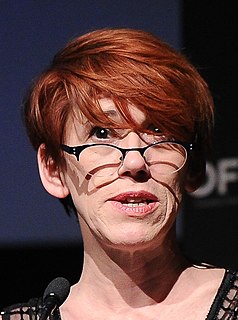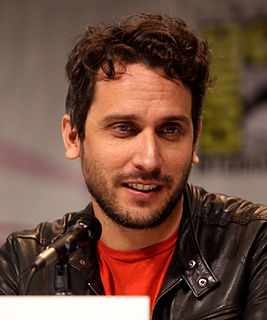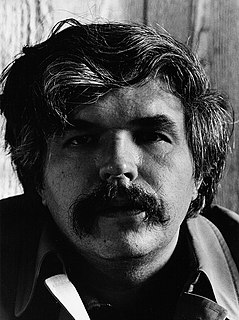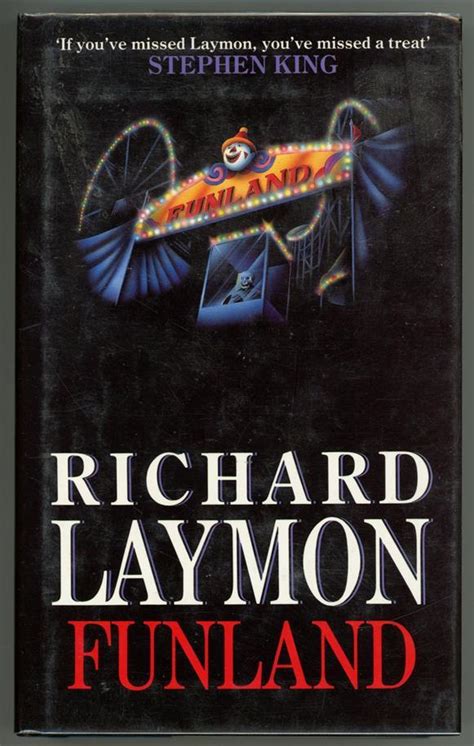A Quote by Renata Adler
The motion picture is like journalism in that, more than any of the other arts, it confers celebrity. Not just on people - on acts, and objects, and places, and ways of life. The camera brings a kind of stardom to them all. I therefore doubt that film can ever argue effectively against its own material: that a genuine antiwar film, say, can be made on the basis of even the ugliest battle scenes ... No matter what filmmakers intend, film always argues yes.
Quote Topics
Acts
Against
Always
Antiwar
Any
Argue
Arts
Basis
Battle
Brings
Camera
Celebrity
Doubt
Effectively
Even
Ever
Film
Genuine
Intend
Journalism
Just
Kind
Life
Like
Made
Material
Matter
More
Motion
Motion Picture
No Matter What
Objects
Other
Own
People
Picture
Places
Say
Scenes
Stardom
Than
Them
Therefore
Ways
Yes
Related Quotes
African films should be thought of as offering as many different points of view as the film of any other different continent. Nobody would say that French film is all European film, or Italian film is all European film. And in the same way that those places have different filmmakers that speak to different issues, all the countries in Africa have that too.
In any film business, if you're trying to get your next film made, you would never say, 'Oh, my last film was a cult film.' I'd say, 'Oh, great, well I hope this one isn't!' I always say to Johnny Knoxville, 'How do you do it? You sort of do the same thing we did, except you made millions, and I made hundreds.'
I was very inspired by Les Blank's film 'Burden of Dreams.' I think what's unique about his film and the two I've made is that they're close examinations of filmmakers and how their own emotional experiences reflect in the material they're rendering, and vice versa - how that material sometimes colors their own lives.
To me, a revolutionary film is not a film about a revolution. It has a lot more to do with the art form. It's a film that is revolting against the old established language of cinema that had been brainwashing the people for decades. It is a film that is trying to find ways to use sound and image differently.
If you take 'Agni Natchathiram,' it is about two half-brothers and their emotions and those are genuine, which can be made into a very hard-hitting film just that it can be presented in an entertaining fashion. Similarly with 'OK Kanmani,' it is a genuine film; it is not a flippant film just for commercial purposes.
I have an Honors Degree in Drama from the University of Alberta, but when it was done I knew a life in modern theatre was not for me. While figuring out what the hell I might do instead of theatre, I spent a couple of days on a horror film doing stunt work. I'd never been behind the camera before, and I loved everything about it. I joined the local film co-op - The Film and Video Arts Society of Alberta - because you could trade skills for experience. These indie filmmakers were making their own stuff their own way, all the time. Instant education.
With The Exorcist we said what we wanted to say. Neither one of us view it as a horror film. We view it as a film about the mysteries of faith. It's easier for people to call it a horror film. Or a great horror film. Or the greatest horror film ever made. Whenever I see that, I feel a great distance from it.
I was struggling against the flypaper of other arts harnessing film to their own usages, which means essentially as a recording device or within the long historical trap of picture - by which I mean a collection of nameable shapes within a frame. I don't even think still photography, with few exceptions, has made any significant attempt to free itself from that.
A few of my books, over the years, have been optioned for film. The subject matter of my books, however, is not exactly conducive to Hollywood film treatment. If and when a 'big-budget' film is ever made based on one of my books, my fans and I will more than likely loathe it because it won't be true to its source. That's almost a given.
I have nothing but gratitude for the people who made the film. It was a most unusual experience. I'm no judge, and the only film I've ever seen made was Mockingbird, but there seemed to be an aura of good feeling on the set. I went out and looked at them filming a little of it, and there seemed to be such a general kindness, perhaps even respect, for the material they were working with. I was delighted, touched, happy, and exceedingly grateful.
What I want to do is make things that I think people want to watch. I'm a film fan, so I think I'm in touch with other film fans and that they might want to watch stuff. The other reason I really don't care is because no matter what you do in life, no matter what you wear, or what you say, people are going to like it or they're not. And that is all. Everything, down to the socks I chose today - people are going to like them or they're not and there's nothing you can do about that.

































